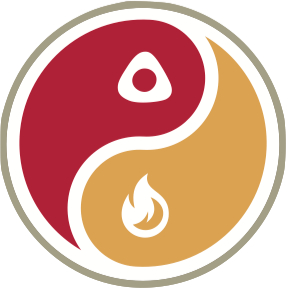Biochemical Warfare
In response to the 30-day trial that Zooko and I recently recommended, one correspondent argued about the importance of plant foods. He made several points I’d like to address, but the one I want to talk about here is one I’ve heard many times before. The statement is to the effect that plants are full of a variety of healthful compounds, many of which we have surely not even yet discovered.
This idea has an assumption behind it that I strongly disagree with: that we evolved to eat a significant amount of plant matter, and therefore we are likely to have optimised our functioning on the biochemical compounds in those plants. I disagree for the following reasons:
- Whether we evolved eating a lot of plants is contentious. At the very least, there have been times and places that we had little to none.
- What we do know about plants is that their survival strategy is biochemical. They generate many chemicals (many of which we surely have not even yet discovered) with which to poison their would-be eaters!
My correspondent went on about his diet, listing biochemicals in the foods he eats, and lining them up with diseases those chemicals have been shown to have promise in fighting.
I agree that the biochemicals in plants often turn out to have medicinal properties that we can make use of. For those properties, the chemical typically has to be extracted to get a high enough concentration to have any effect. These compounds are much like drugs we make ourselves, in that they usually have unwanted side-effects. Commonly, they are double edged swords. For example, some plant chemicals are widely touted because they harm cancer cells. The bad news is that they also harm your healthy cells. So like chemotherapy, it is a matter of hoping the healthy cells survive better than the cancerous ones.
In a recent article by Michael Pollan, whose brilliant slogan we bastardised without even a nod (we hope he takes it in stride) [1], he describes how plants produce chemicals, not just as a matter of growing, but in a real-time response to predators. For example:
“One of the most productive areas of plant research in recent years has been plant signalling. Since the early nineteen-eighties, it has been known that when a plant’s leaves are infected or chewed by insects they emit volatile chemicals that signal other leaves to mount a defense. Sometimes this warning signal contains information about the identity of the insect, gleaned from the taste of its saliva. Depending on the plant and the attacker, the defense might involve altering the leaf’s flavor or texture, or producing toxins or other compounds that render the plant’s flesh less digestible to herbivores. When antelopes browse acacia trees, the leaves produce tannins that make them unappetizing and difficult to digest. When food is scarce and acacias are overbrowsed, it has been reported, the trees produce sufficient amounts of toxin to kill the animals.”
To think that we co-evolved with plants in symbiosis, them providing us with countless, needed medicinal concoctions, while we selectively kill them and eat them, seems a bit naive. While it’s true that some species rely on having their seeds carried, undigested, for better distribution, or their pollen spread, this is does not imply they get value from having their very bodies eaten. Even that fruit and nectar need only be helpful to some species; It didn’t evolve dependent on humans per se.
Finally, I find it a little sad that my correspondent is seeking to avoid disease through constant miniscule doses of medicine that are likely to be accompanied by as much toxin. There is no evidence that such a strategy has any beneficial effect. On the other hand, a ketogenic diet has increasingly stronger types of evidence suggesting it will protect against those diseases [2]. As we speak, randomised clinical trials are underway to help clarify whether this is true. Such is not the case for vegetable eating.
1.For those of you who didn’t recognise it, Michael Pollan famously recommended: “Eat food. Not too much. Mostly plants.”
2. See, for example, our post, [The medical-grade diet]
(https://mostly-fat.ghost.io/2013/08/the-medical-grade-diet/).
